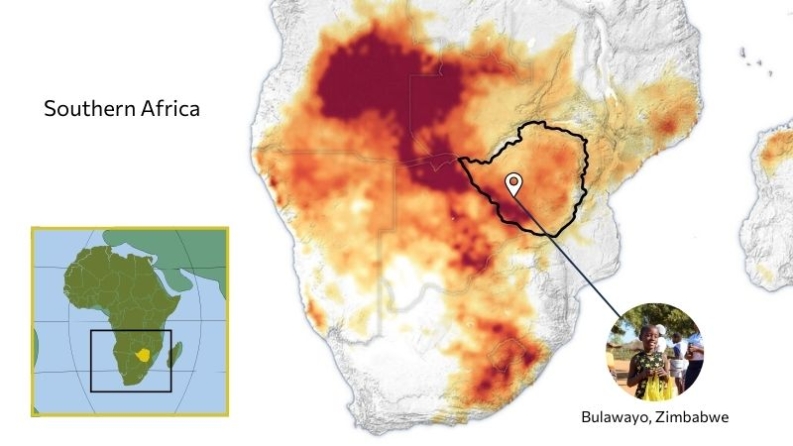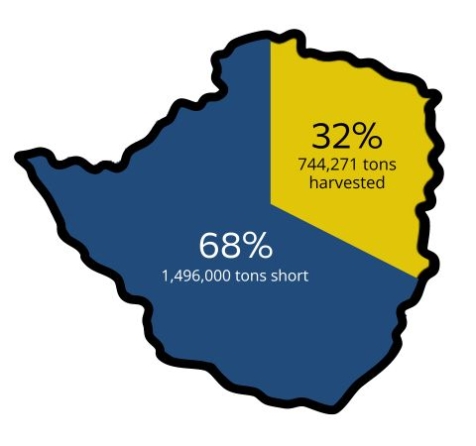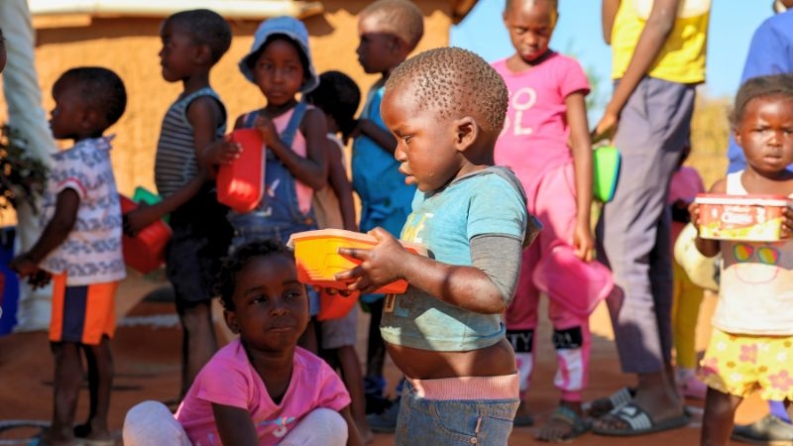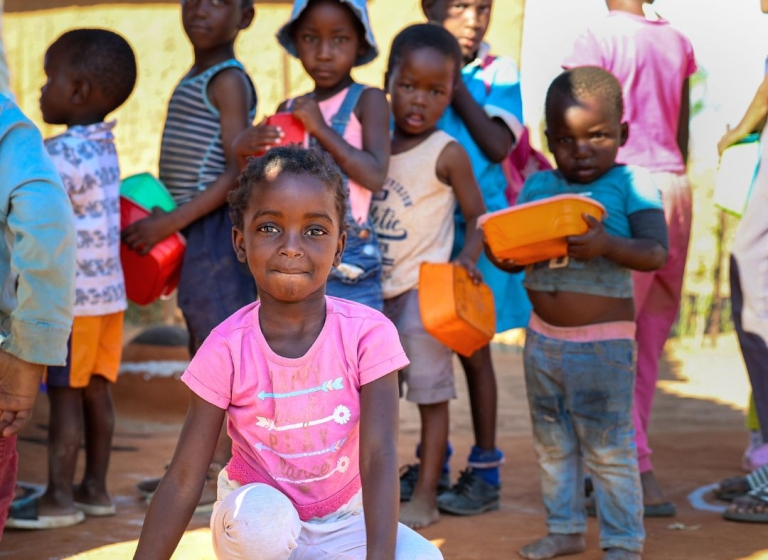The global food crisis, driven by rising costs, climate change, and conflict, is pushing millions into emergency levels of hunger.
In Zimbabwe, over half the population is facing acute hunger due to food insecurity, significantly worsened by El Niño-induced droughts that have impacted Southern Africa. These droughts are severely affecting food security, agriculture, and livelihoods.
Vulnerable groups, including individuals with disabilities, children under five, and the elderly—making up 16% of Zimbabwe’s population—are at heightened health risk due to the drought. With less than 70% of nutritional needs expected to be met by the 2024 harvest, these communities urgently need assistance. Mustard Seed Communities (MSC) is working to feed children, mothers, and the elderly at five sites in Bulawayo, Zimbabwe amid the escalating crisis.
Every day, 1,200 children are served a nutritious hot meal across MSC’s five nutrition program sites.

Zimbabwe has a population of 15.2 million. The World Food Program and UNICEF indicate that:
42%
of Zimbabwe’s population lives in extreme poverty
24%
of children between 6-59 months live with chronic malnutrition
~50%
of deaths among children under five are linked to undernutrition
The Shortage
Zimbabwe’s President Emmerson Mnangagwa said in May that nine million people, over half of Zimbabwe’s population, are expected to be food insecure during the 2024-2025 lean season. Many households run short on food for the first few months of each year, referred to as the lean period, as they wait for a new harvest.
This year’s harvest faces the warming of the ocean surface in the central and eastern tropical Pacific Ocean, known as El Niño. For Southern Africa, El Niño means dry season, and the 2023-2024 El Niño has peaked as one of the five strongest ever recorded. In the midst of drought, the upcoming lean season will be leaner than ever.

El Niño caused more than 80% of Zimbabwe to receive below normal rainfall, decimating the harvest and exacerbating existing socioeconomic vulnerabilities.
Last year, Zimbabwe needed about 2.2 million tons of corn, a staple crop, to feed the population – projections of this year’s El Niño-impacted harvest show a result of only 774,271 tons of corn. This leaves the population in a critical food shortage.
“Governments are doing their best but cannot deal with a shock on this scale,” says Menghestab Haile, World Food Program Regional Director for Southern Africa. There is little hope for replenishing food stores this year, and Zimbabwe predicts even more people than previously forecast will need food aid.

How You Can Make a Difference with Us
Food insecurity means more than hunger – it puts individuals at risk for greater health issues and endangers people who must travel far to find the barest amount of food and water. The World Food Program projects that “The deterioration of nutrition status will render children under age 5, as well as pregnant and breastfeeding women, more vulnerable, as they depend on higher [nutrient] intake. Poor nutritional status and consequent poor immunity of children under age 5 will further increase their vulnerability to infectious diseases.”
Since 2002, MSC Zimbabwe has developed five critical nutrition initiatives that provide daily meals to Bulawayo’s most vulnerable families. At these sites, carers and volunteers prioritize the community’s holistic wellbeing, stating that “Every child has become everyone’s child—the nutrition programs have become a family.”

Every day, 1,200 children are served a nutritious hot meal across MSC’s five nutrition program sites. Volunteers fill children’s bowls, carried from home, with rich cornmeal and stew to fuel them through the hot afternoon. Fresh water is available when otherwise it would be scarce. At these sites, stationed around Bulawayo, hope fills the spirits of individuals who are critically in need.
MSC’s nutrition programs provide a life-changing safety net for the hungry children of Bulawayo, Zimbabwe. You can join our mission to stand with Zimbabwe in dignity and respect by supporting our nutrition programs today. Together, we can make a difference amidst historic hunger.
 Community Development & Outreach
Community Development & Outreach
 Food
Food
 Nutrition
Nutrition
